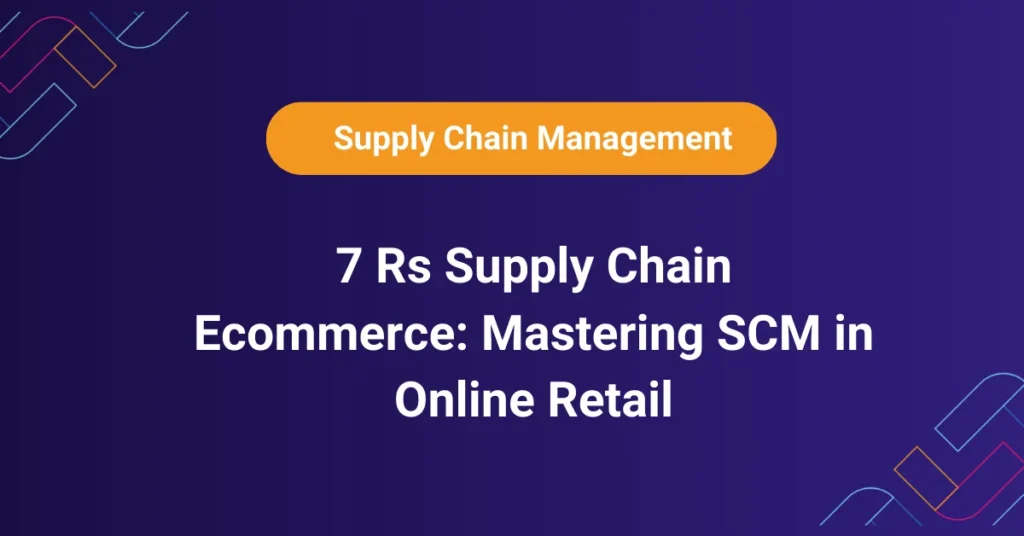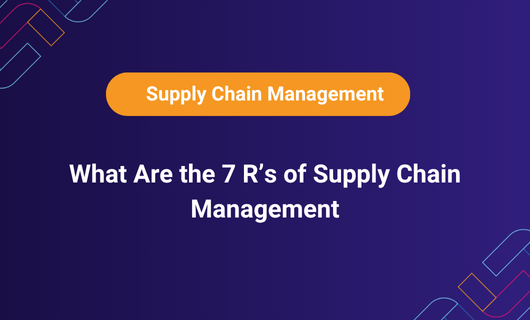The Way You Manage Inventory, Fulfillment, and Growth
In the highly competitive e-commerce landscape, efficient supply chain management (SCM) isn’t optional. It’s essential. From rising customer expectations to multi-channel complexity, businesses need more innovative tools to stay ahead.
When it comes to the challenges of ERP vs SCM E-commerce, one thing becomes clear manual processes, disconnected systems, and data silos are major roadblocks to growth. That’s where Enterprise Resource Planning (ERP) steps in as a centralized solution designed to streamline your entire real-time supply chain management.
Ready to simplify operations and scale with confidence? Book Your Free ERP Demo Today.
What Is ERP in Supply Chain Management?
ERP in SCM refers to an integrated software system that connects core supply chain functions such as:
-
- Inventory management
-
- Order processing
-
- Procurement and vendor coordination
-
- Warehouse and logistics tracking
By consolidating these processes into a single platform, ERP eliminates inefficiencies, improves visibility, and accelerates decision-making across departments.
Explore how ERP software can elevate your logistics strategy. Schedule Your Demo Now.
The Benefits of ERP for E-Commerce Businesses
A robust ERP system delivers tangible advantages for growing e-commerce brands. Here’s what you gain:
1. Real-Time Data Visibility
Make informed decisions using live data from across your inventory, vendors, and order channels. No spreadsheets are required.
2. Process Automation
Eliminate repetitive tasks, such as manual stock updates and report generation, freeing your team to focus on growth.
3. Multi-Channel Synchronization
Effortlessly manage inventory and orders across platforms like Shopify, Amazon, and WooCommerce, all from one dashboard.
4. Scalability Without Chaos
As your business grows, your ERP system evolves to support new warehouses, sales channels, and team members.
5. Smarter Forecasting
Leverage historical and real-time data to anticipate demand, reduce overstock, and avoid costly stockouts.
Gain the operational edge you need. Request Your ERP Demo Today.
How ERP Helps Amazon and Shopify Sellers Compete
Whether you sell on Amazon, Shopify, or both, ERP provides the tools to scale efficiently:
-
- Automatically sync inventory across marketplaces
-
- Integrate seamlessly with Amazon FBA and FBM logistics.
-
- Avoid overselling and fulfillment delays.
-
- Track performance KPIs across channels in one view
See how top sellers stay ahead with ERP. Schedule Your Personalized Walkthrough.
When Should You Invest in ERP?
If your business is experiencing any of the following, it’s time to consider an ERP system:
-
- Inefficient manual processes are eating up time
-
- You manage multiple sales channels and fulfillment options.
-
- Visibility into operations is limited as you grow.
-
- Errors in order management are costing you money.
Don’t let complexity stall your growth. Get Started with ERP Today.
Why Brankit: Your Trusted ERP Partner
At Brankit, we don’t just provide software. We deliver customized ERP solutions built for e-commerce success. Here’s why businesses choose us:
-
- E-Commerce Expertise: Deep understanding of platforms like Shopify, Amazon, and WooCommerce
-
- Tailored Implementations: Scalable systems that grow with your business
-
- Real-Time Support: US-based customer service with dedicated implementation experts
-
- Proven Results: Trusted by fast-growing e-commerce brands across the country
Experience a more innovative way to scale, partner with Brankit. Request Your Free Demo Today.
Frequently Asked Questions (FAQs)
What is ERP software in supply chain management?
ERP software integrates inventory, procurement, order processing, and logistics into a single system, enhancing operational visibility and automation throughout your supply chain.
How can ERP help my e-commerce business?
ERP enhances efficiency by automating workflows, synchronizing inventory across channels, minimizing order errors, and providing real-time data access for informed decision-making.
Is Brankit ERP compatible with Shopify and Amazon?
Yes. Brankit ERP integrates seamlessly with platforms such as Shopify, Amazon (FBA and FBM), and WooCommerce, providing unified inventory and fulfillment management.
How long does ERP implementation take?
Depending on the complexity of your operations, ERP implementation with Brankit typically takes between 2 and 6 weeks, including setup, customization, and training.
What support does Brankit offer post-implementation?
Brankit offers full US-based support, including live onboarding, staff training, optimization reviews, and continuous technical assistance.
Final Thoughts: Future-Proof Your Supply Chain with ERP
ERP vs SCM E-commerce is key for any brand aiming for sustainable growth and operational excellence. ERP is no longer a luxury; it’s a necessity. By integrating your supply chain into a single, unified system, ERP empowers your business to move faster, smarter, and more efficiently.Ready to take control of your operations? Request a Brankit demo today and claim your free ERP consultation.





